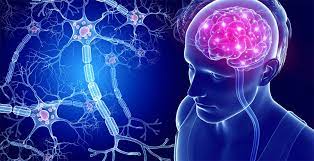Understanding Alzheimer’s With 7 Stages of Changes

Alzheimer’s disease is a progressive neurological disorder that affects people over time. It can lead to memory loss, personality changes, intellectual incapability, etc. Alzheimer’s is unique to everyone but progresses via seven stages. Each stage presents more critical symptoms, which are detrimental to the overall health of the patient.
By understanding the seven stages of Alzheimer’s, you can help and support your loved ones with the condition. Even though this disease has no cure, you can still do something to help those living with the condition. Here are the seven stages that will guide you on the cognitive changes you might experience.
No Alzheimer’s symptoms
Alzheimer’s disease is very unnoticeable in the initial stages. It can be anywhere from 10-15 years before any tangible symptoms manifest. At this point, an individual will not be considered to have dementia. These are treated as basic symptoms of aging. A brain specialist in Mumbai or at other locations conducts imaging and PET scans to assess brain activity changes.
Slight memory loss and forgetfulness
Most people aged 65 and above may complain of functional and cognitive difficulties. For example, older adults at this stage cannot remember past events or where they place things. The popularly used term for this stage is subjective decline. From this stage, cognitive functions can decline more rapidly than in people of the same age with no dementia. This stage can last for over 15 years in people who are considered clinically healthy.
Minimal cognitive impairment
At this stage, the symptoms can only be noticed by family and people who closely associate with the person with cognitive impairment. At this stage, the manifesting deficits are subtle and in different ways. Some symptoms include;
- Repeatedly asking the same questions
- Forgetting things they have read
- Trouble planning and organizing
- Cannot remember names after meeting new people
This condition can be diagnosed by specialists to find the underlying issues causing cognitive decline.
Moderate memory decline
Diagnosing Alzheimer’s disease at this stage is more accurate. Most people cannot manage complex life activities that affect their independence. This stage can last for years, but affected parties may still remember basic details about their lives.
Some challenges during this phase include;
- Confusion about the day and the location they are in.
- Higher risks of getting lost or wandering.
- Changing sleep patterns and restlessness throughout the day.
- Difficulty choosing clothes appropriate to the weather.
- Struggling to perform repetitive tasks like cleaning the house and laundry.
Moderately severe cognitive decline
When a loved one hits this stage, they can lose track of time or where they are. They can barely remember their telephone number, home address, or the schools they attended. People with Alzheimer’s disease in this stage can also wear the same clothes daily unless they are reminded to change. They cannot do things independently and need people to help. They need someone to assist in providing food, paying rent and utilities, and taking care of finances. People may also undergo emotional changes, including;
- Hallucinations
- Paranoia
- Delusions
Severe cognitive decline
At this stage of Alzheimer’s disease, the affected person may not perform daily life activities. For example, they may need assistance wearing their clothes at this point. When they do it alone, they may put on their pullovers backward or put their hands in the wrong sleeves. There are around five stages within the sixth stage.
Stage 6.2 – The person will need assistance to bathe in this stage. Another difficulty is adjusting the water temperature. Hygiene and personal care routines are primarily impacted in this stage of the disease.
Stage 6.3 – 6.5
If they are not supervised, people with Alzheimer’s disease can rarely manage to use the toilet independently. They may forget how to use the tissue or adequately flush the toilet. Urinary and fecal incontinence is prevalent at this stage.
Fortunately, incontinence is treatable and preventable by brain specialists in Mumbai or at other locations. However, in the later phases of the sixth stage, affected persons can forget their family members.
Severe dementia
At this stage, people with Alzheimer’s disease need full-time assistance with basic life activities. They also experience problems with speech, speaking only a few words.
A person with AD will also need assistance eating, sitting up, or walking. They are mostly on a soft diet and need the training to use spoons and drink. Tracking their fluid intake is crucial because they rarely feel thirsty. This stage lasts for around 1-2 years. Most people with Alzheimer’s disease succumb at the last phases of stage 7 when most brain functions are limited.
The first step to caring for a loved one with Alzheimer’s is tracking the progress of dementia. Learning the stages helps you communicate effectively with care providers to ensure they get the proper care. You can stock medical supplies as you prepare for the subsequent stages. It can either be getting a wheelchair or learning how to respond to symptoms. Early detection of Alzheimer’s can help reduce the progression of the disease and prolong life for the affected.






